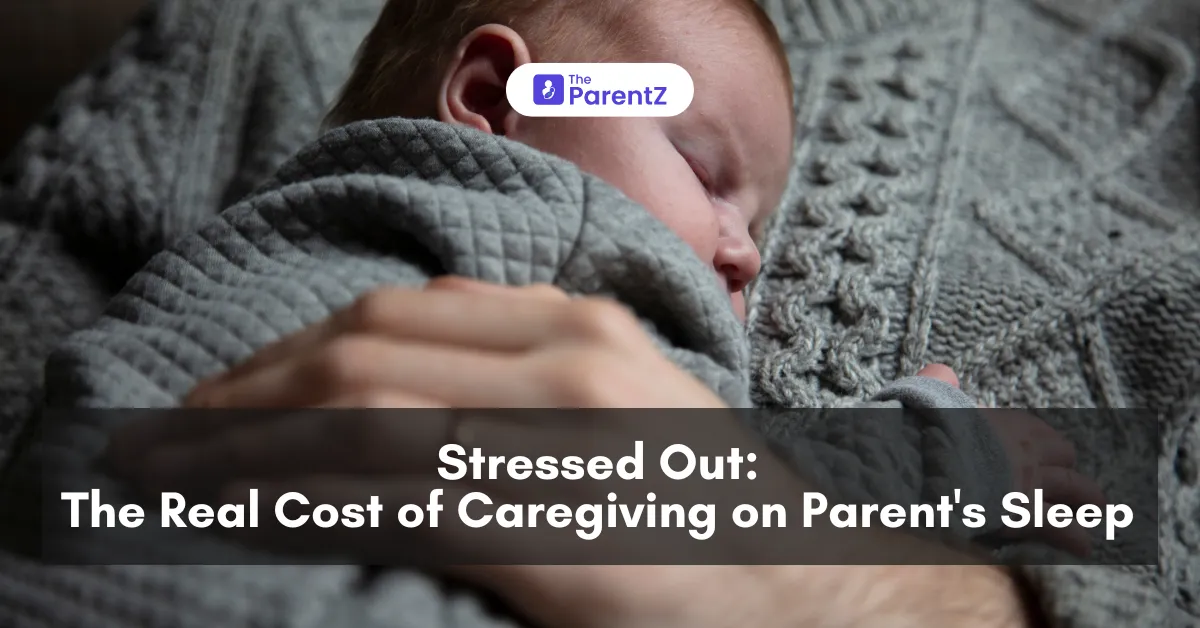Parenting absolutely has no breaks, no sick days, and certainly no paid time off. Even though raising a little one is exciting, it's equally tiring too.
In fact, for many parents, who are balancing work and household chores along with caregiving, sleep has become a distant thought.
Did you know in a study it was revealed that parents of young children lose an average of a whopping 109 minutes, roughly two hours of sleep per night, compared to the time before giving birth?
You might think that this sleep debt will magically disappear as kids grow.
Well, the answer is no.
The reality is—parents with kids as old as six still sleep less than those without kids.
So, what exactly is the cost of caregiving on a parent’s sleep? Read below this article to find out more.
Sleep Deprivation
There’s a universal joke among parents that starts with, ‘I haven’t slept since 2010.’
The reality, however, is far from funny. And sleep deprivation does indeed have some real health consequences.
According to the National Sleep Foundation, adults need 7-9 hours of sleep per night to function properly. However, for parents, especially those with infants and younger kids, this sleep goal is nearly impossible.
As per a survey, one in three parents gets fewer than six hours of sleep per night.
Besides, lack of sleep can lead to increased stress and anxiety, a higher risk of depression, poor decision-making, and a very poor immune system.
Unfortunately, chronic sleep loss is also associated with an increased risk of heart disease, obesity, and diabetes. That’s perhaps overwhelming.
The Invisible Labor
The harsh reality is—parenting is also mentally and emotionally draining. And that's the invisible load of caregiving.
And it is not uncommon for parents to figure out endless questions before lying down for a good night's sleep.
From what should I pack their lunch for tomorrow to did I send that email to the teacher? Are we out of diapers? What is that weird rash on my kid’s leg?
Well, the questions are infinite.
However, this is the case with almost every parent. According to a study, parents—especially mothers—carry the bulk of emotional labor in households.
Or, in simple words, it means even when they finally lie down, their brains actually refuse to shut off.
Nighttime Wake-Ups
Babies waking up at 2 AM? Well, that's common.
Toddlers needing water and some extra cuddles, that’s manageable too. However, when older kids and even teens are disrupting sleep, that’s when things really start to sting.
According to the Centers for Disease Control and Prevention (CDC), parents with kids under age 5 wake up an average of 2-3 times per night. However, even parents of teens aren’t spared—late-night homework, anxiety, and social media habits can keep entire households awake.
For parents, sleep loss has turned into a reality.
The Myth of Catching Up on Sleep
The biggest lie parents tell themselves is that they will just catch up on sleep this weekend.
However, did you know that science says you can’t actually catch up on sleep loss? In fact, trying to recover sleep on weekends doesn’t reverse the effects of chronic sleep deprivation.
In short, the long Saturday morning snoozes won’t actually fix the damage done during the entire week.
Conclusion
The truth is—most parents willingly sacrifice sleep and personal space, especially for their little ones. However, the cost of chronic sleep loss is real.
Therefore, it becomes more important than ever to establish a proper and consistent bedtime routine, especially if you want to minimize sleep loss. But until then, maybe you will just need one more cup of coffee.





Be the first one to comment on this story.